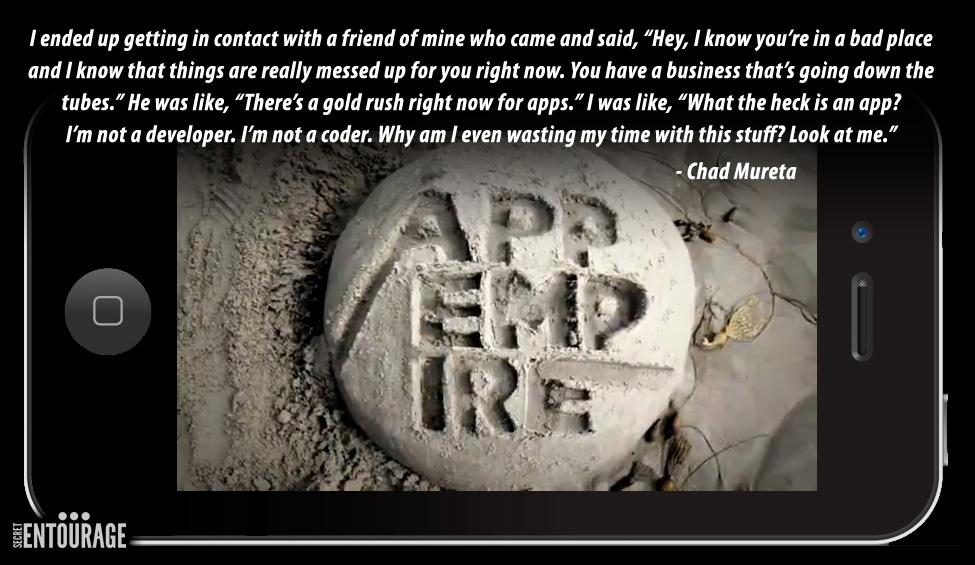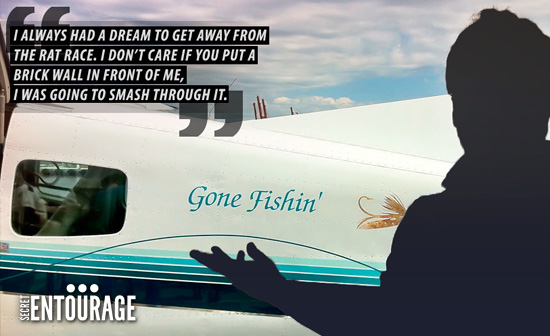
I always had a dream to get away from the rat race. I grew up in Vermont, which is an amazing state but it’s also sort of secluded. I grew up in a family where everyone is blue collar and both my parents made about $35,000 a year. No one really had this type of entrepreneurial mindset. I realized a lot of problems people had in relationships was due to money. I saw divorces all over the place and I said, “I cannot live my life like this” so I had to figure out a way to actually make money and enjoy life. I went to college thinking that if I jumped into business management it would give me the tools I needed. So I started that journey by basically running an eBay business out of my dorm room and doing different random things to make money.
Eventually, I got into real estate and started flipping houses. Everyone was in real estate and making money so I said, “Okay, this is my path to freedom.” I started reading Robert Kiyosaki’s books to learn as much as I can about real estate and cash flow. That really motivated me and inspired me. I was in my early 20s so I felt like I had the whole world ahead of me.
I started flipping properties and made some really good money and I thought, “How can I take this to the next level?” That’s always been kind of the question for me, how can I take what I’m doing now to the next level no matter what level I’m at. At that time, I thought I was opening up a real estate company down in Myrtle Beach, South Carolina, which was where I went to college.
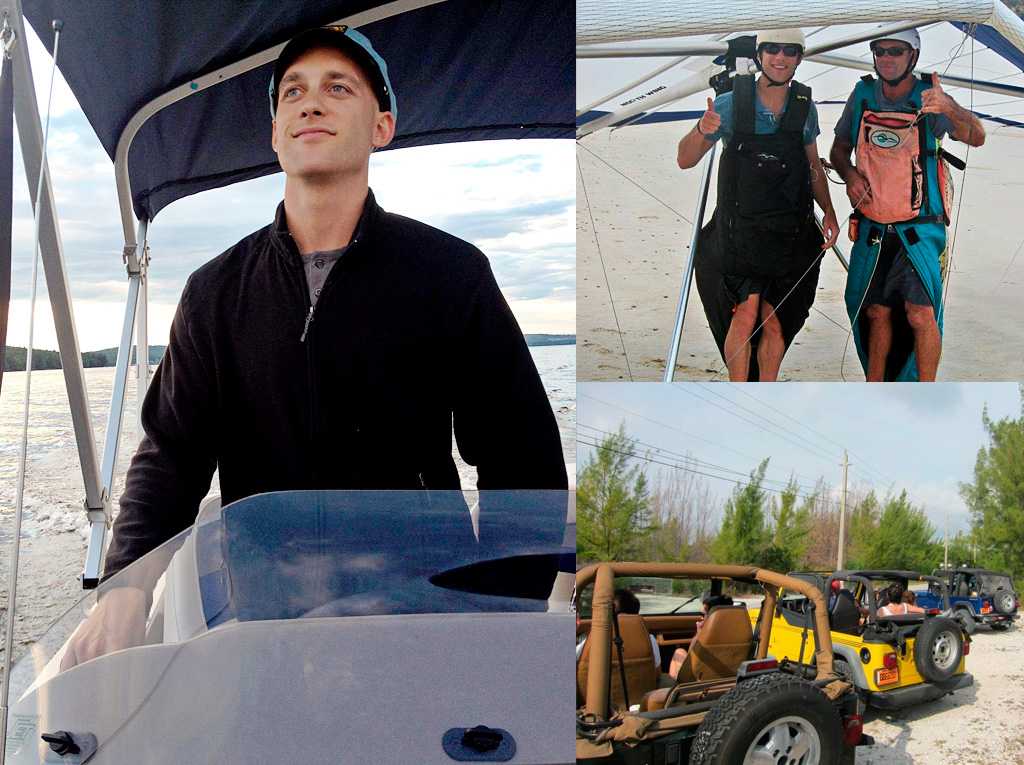
In 2006 it was growing and really transient by nature so I took all the money that I had and invested it in this company. However, it was the worst possible time to invest and start a real estate company because the market was just about to crash. I watched all this money that I just made and all the effort that I put in basically go down the tubes. I was struggling to keep my team alive, keep things happy, and I was just working these crazy 18-hour days, seven days a week, and I was just consumed. I think most people were basically just giving up but I had a blue print in my mind. I was like, “I’m going to make this happen no matter what.” The problem was that I was sacrificing everything in my life – so relationships, my health, time to myself. I wasn’t really working out or doing anything because I was just completely consumed by work.
I had this moment where I was like, “Okay, I have to do something. I have to actually take some time to relax a little bit and take a breath.” The Boston Celtics, my basketball team, were playing in Charlotte, North Carolina so I invited a friend with me to go and watch the game. I met Michael Jordan who was my biggest idol growing up. I was looking around and I was like, “Gosh this is amazing.” People actually do stuff at night. They relax, they get entertained.” I was like, “Okay I have to make a major shift because what I’m doing is not working.”
I was driving home on the interstate that night around 10:30. I was just in my head thinking, “I have to make a major shift. What can I do?” It’s amazing once you are dedicated to that, the universe has an interesting way to show up and it did. A deer ran out in front of me in the interstate and I hit the deer. I ended up swerving back and forth and smashing to a tree and my truck flipped over four times. Everything changed for me in that moment, everything.

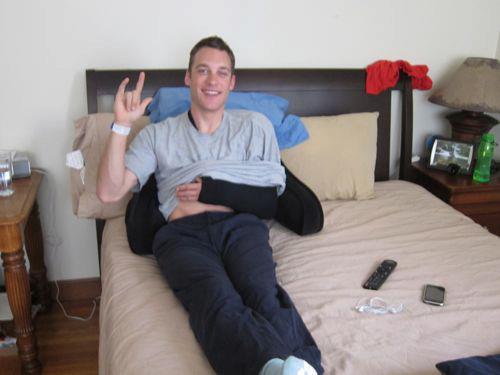
I basically woke up in the hospital and they said that I’ll never use my arm again. They were going to amputate it or I wasn’t going to have any feeling basically. With all this uncertainty of my life, everything got put into perspective because business wasn’t that important now. My health was important, relationships are important because I wasn’t connecting with people, and also, the kind of business that I was doing. I was realizing this business that I started needed me around all the time so if was out of the picture then this thing was going to go down the tubes because everyone was listing their properties with me. I was like, “Geez, I totally messed up and I don’t even know what I was going to do.” I just spent all my money making this business survive. Seeing that I had hundreds of thousands of dollars in medical bills was a lot to take in. I didn’t know what I was going to do.
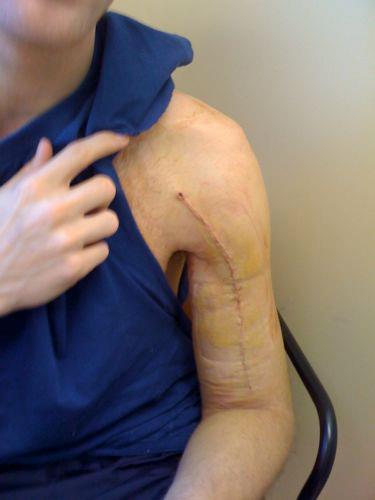
This was in January of 2009 and I had just got an iPhone. I’m lying in my hospital bed looking to the left of me and had my clothes that were all cut up in a million pieces. I ended up getting in contact with a friend of mine who came and said, “Hey, I know you’re in a bad place and I know that things are really messed up for you right now. You have a business that’s going down the tubes.” He was like, “There’s a gold rush right now for apps.” I was like, “What the heck is an app? I’m not a developer. I’m not a coder. Why am I even wasting my time with this stuff? Look at me.”
He said, “Just think about it” and showed me this article. It was these two guys who had no tech experience at all but had started up this business and came up with a few app ideas. They made a tremendous amount of money and it was that moment that I saw and said, “Okay, well if these guys do it. I can do it too.” I can see that mobile is going to catch on. I can anticipate the change of the market. Internet is here. Online is pretty strong. It’s evidently going mobile.
As I lay in the hospital bed, it’s amazing what morphine can do because I got really creative and started drafting out this idea that I had for an app, which was based on people trying to grab my phone during the accident. I was like, “If I had all this information in my phone, I want some type of security in there so people can’t grab my pictures and stuff like that.”
I borrowed $1,800 from my step-dad. I basically said, “Look, I’m in a bad place. I don’t know if this going to work. I feel like I can make it work.” I think at that time, he didn’t have a lot of money either but he said, “You know what, I believe in you so here you go.” If I didn’t have that money to get going, I don’t know what I would have done but that was a great little jumpstart for me for sure. I started drafting the app and somehow wired money to India and hired this guy.
Long story short, I had my first app in the store two months later and it started generating revenue. It was absolutely incredible.
It was basically a fingerprint security app. I understand the demographic and what they would want so I made it with good sounds and really good graphics. However, it didn’t actually read fingerprints. It did keep people out and worked as security because a lot of people at that time didn’t know really what an iPhone was. If you left the screen open and someone grabbed your phone and tried to scan their fingerprint, it was set up so only I could trigger it to unlock it for me. It looked real and had intent of going through the fingerprints. It had a secret unlock button on the top right that no one can see. The app had to be open and so you can basically close the screen. If they opened up, it would be in the fingerprint app.
Someone from the hospital was actually from India so I didn’t have the idea of outsourcing to India at first. He basically said, “Hey, I’ve got this cousin that’s doing development and you can contact him.” Again, I’m in this weird state. I’m all messed up. I’m trying to figure out what’s going on. I was like, “Okay. That sounds great.” It was definitely a guided moment because that guy put me in touch with the team that actually was able to develop what I was looking for.

There were tons of obstacles. It was brand new so there’s no education. There was no book resource so most of it was just falling on my face and kind of learning how to deal with it, but it was nothing like I expected. Actually, it didn’t go as bad as it could have. I was basically stuck basically trying to get my arm to work again so I was pretty present during the process which is key for an app. You have to make sure that you’re constantly there, laying things out the right way, getting back to them, etc.
Luckily, they had done apps before but it wasn’t their very first iPhone app. I think they didn’t really understand completely how to go back and forth with the customer that had no tech experience so I had to learn how to communicate. It was somewhat of a foreign language but I always looked at it from the perspective of “I can figure this out. As long as I communicate properly and I really give them the expectations, I should figure this out somehow.”
I wasn’t really able to use computers so I sketched everything out. I tried to make it as good as I possibly could and then I faxed it to myself, turned it to PDF and I just emailed it to them. I went over how I wanted to look in sequence and stuff like that.
They started sending me three different examples. I said, “Hey, this is what I want. Send me three different examples. Let’s talk about it. Let’s tweak it if we need to.” During the whole process, I basically was there when they would do a couple of screens or make a button or program something. “Send me this immediately so I can look at it and then I’ll get back to you with my comments.”
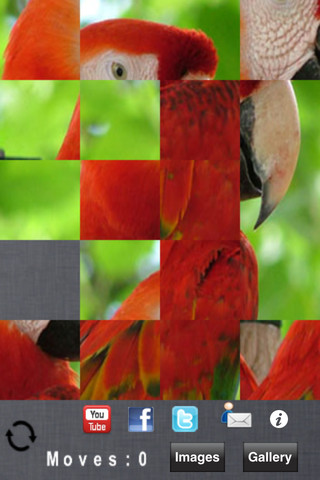
I’ve done over probably 65 different apps so I learned a lot, worked with a lot of different teams. The first one, I was fortunate because it was an actual team that had designers and programmers but as I started doing more apps with them, I saw a hole. I saw that things were a lot more expensive. They started charging more because they had value. I also felt like talking between India was difficult because miscommunication was really easy since it wasn’t the native language. I did four or five apps with them and I moved on to a different team. I was constantly doing that – doing a few apps, learning, moving on to somebody else until I kind of found the sweet spot.
I hate the word perfect. I think that that’s probably the worst thing that people can have because nothing is ever perfect. The standards have changed for Apple so before you could basically throw a bunch of stuff out there and make quite a bit of money. Now, the user demands more and Apple actually demands more so they will reject the apps that don’t fit a certain quality. I think probably the best advice I could give is make sure you get something in the store and if it’s taking you a while, scale it back a little bit and get something in there that you’re proud of. It should be good quality as far as design, and I say good quality meaning it works and aesthetically as pleasing. Once you have kind of that base, I really believe in getting anything in the store because without that, you have nothing.
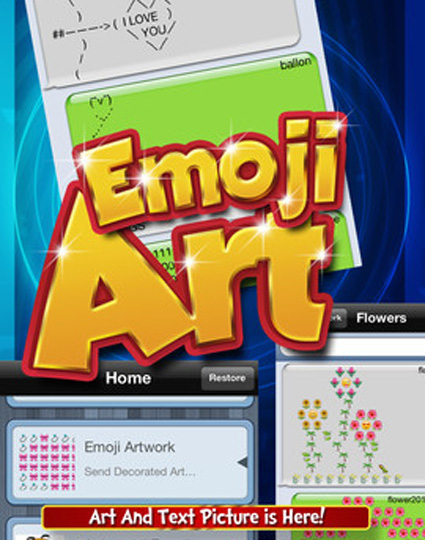
It was the paid version for $0.99 before the whole freemium model was introduced. I started making quite a bit of money on it and I said, “Okay, this is a real business and I can really dedicate my energy this way” because it was amazing. Imagine waking up and you’re getting downloads from countries you didn’t even realize were countries. I was making $200-$400 a day and I wasn’t doing anything. The first time, I was like okay, finally, there’s a business out there that can actually pay you where you don’t have to trade time which to me was incredible because I’ve always been looking for that my whole life.
It took off but then again I didn’t know what I was doing. I did tweaks but it lasted for about two months and then it slowly started going down. When it went down, I started again realizing, “Okay, there are certain things I’m not doing that I need to do” and it made me really be present in that business because I thought I was going to make $400 a day for the rest of my life for some reason. It made me realize there are certain clues of the business, certain things I needed to do. I started really tweaking my icon and my screenshots. I started making them more story based so they could understand all the features and benefits. I started playing around with colors. I tried different blues and different greens to see if that would convert more. I just started getting more systematized with it.
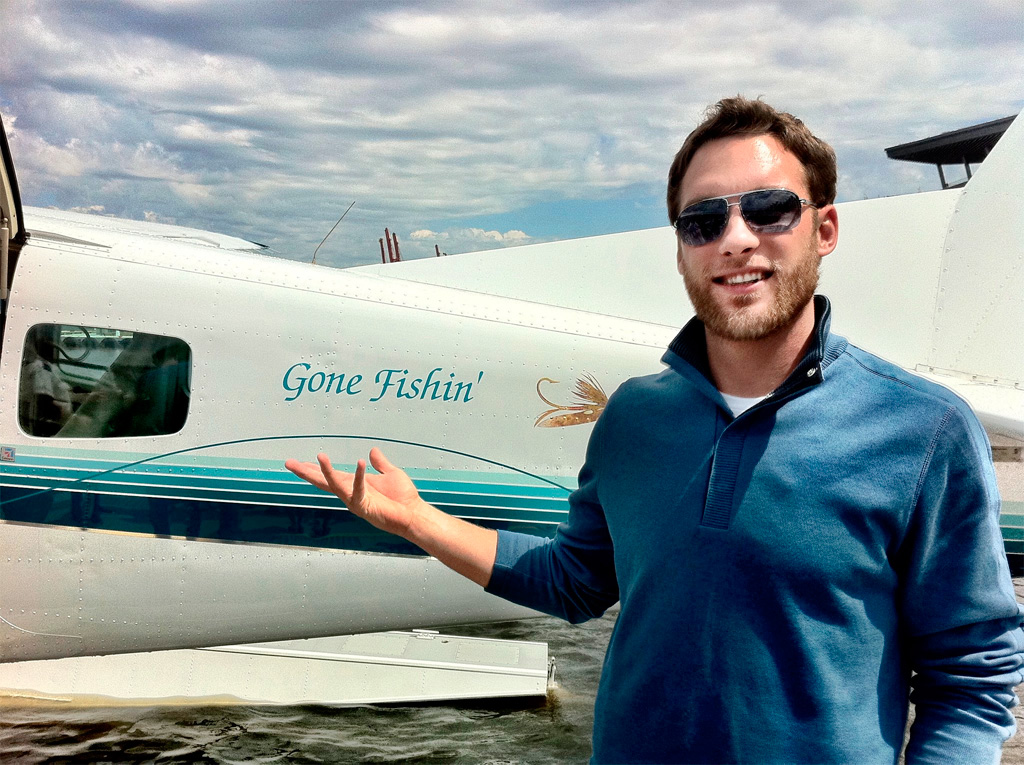
My whole theory was if you spend all this time and effort to know a target demographic, why not keep giving them information, right? A customer is usually worth seven times what they originally paid for something, and I knew that. I was like, “Okay, if they liked security apps, I’m going to build more security apps.” So I did different security functions. I did different alarms like a chimpanzee screaming, a screaming voice, or weird noises.
I basically just started creating a network where people would come in through my funnel and thought, “Hey if you liked this security app, check out this one with all these different sounds.” They would buy that app and I started really understanding that it’s about the network. It’s about being able to target a demographic, give them what they want, and constantly give them new apps so you could increase your reach.
Initially, I was emotional about it. I was like, “Getting one-star review is horrible. People are mad.” And then I just got objective. I was like, “This isn’t a way to run a business. There is a lot of value here. Some people get it, some people don’t. If the person doesn’t read the description which I actually said in there, “This is for entertainment purposes only…” It’s only 99 cents so I wasn’t feeling too bad about that.
I was cognizant of making sure that the people that did love it and were pranking other people, that I was giving them as much value as possible. They would always rate 4-5 stars and the other people who didn’t like it obviously, they would crush it, but it evened out to at least be a relatively good rating so I wasn’t hurt too bad.
My first day was about 90 downloads and then it went from 90 to 160 to 280 to 480 and it kept going up. It stayed right around I think like 500 downloads for a little while until it started coming back down and then I was really able to increase it at that point. I did a couple of things and just started growing my network. I was able to push traffic to it.
I had no idea again what would work and I come from a traditional marketing background. I tried YouTube stuff. I tried some online PR articles and none of it actually worked, none of it at all. I realized that it’s a closed system so I really have to optimize what I have inside of the App Store and that’s when I started figuring out the process and figuring out keywords, and being good with categories. A lot of people do that. They spend time outside of the App Store but you have to first optimize what’s in the App Store. You have to know your keywords, your categories, your screen shots. If you’re not doing that properly, it’s always like 80-20, where is my time best spent. Time is best spent with optimizing what’s in the App Store first then going on outside of it. Then you can try to figure out, “Okay, would these little kids be viewing it on YouTube? I give them promo codes and it was getting thousands of hits but I did that after I felt like everything else was converting.
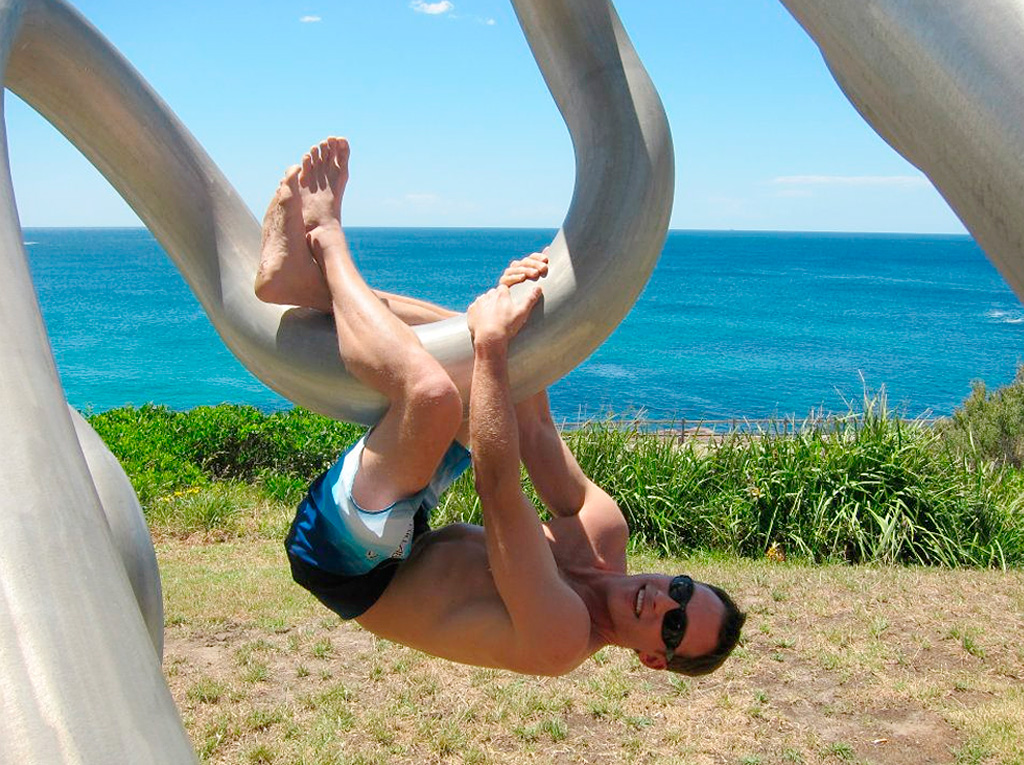
I didn’t know about keywords in the beginning but figured it out and started naming my apps with long keywords. In fact, I did that with company names as well. I had little trick where I found out that if you named your company a certain name and actually was a keyword, that made your app higher. First app I had, it just shot straight up. I’m like, “Okay, I’m on to something here.” So there still is little tricks that they can do. Like any industry, there are holes that get filled and then doors open up, so that one is not as strong but it still does work a little bit.
Now if you did a flashlight app, there are a bunch of flashlight names already. It’s really first to market and first to really grab that keyword. So things have changed and you have to do things a little bit differently. You have to look at other keywords that people might want to use it for, so maybe it’s camping, maybe it’s friends. You can find other keywords that will be strong to throw your app up there.
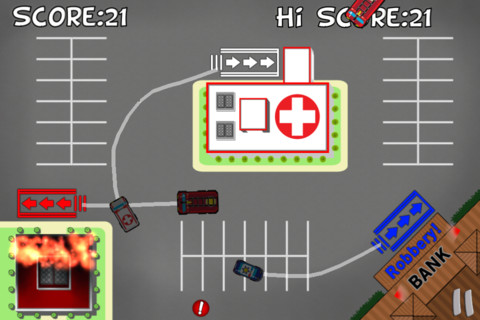
In the beginning the way I worked was basically as simple as possible. I do want the demographics to keep coming back to it. I made three app companies and sold them off, and did a bunch of apps and I could continue to do that but a few things have changed. One thing is I’m not as excited to make those apps anymore. I want to work on bigger app projects.
The other thing is that Apple is looking for different apps and different standards. Games have obviously taken off dramatically. The revenue from games has taken off too. Because the market I’ve also changed my apps a little bit.
I still like entertainment and utility apps, but I also see the value of working with some higher level games and my strategy now is rather work on a few apps and keep making them better and better than having 50 or 70 apps to manage because there’s a lot of work with keywords, updating them, etc.
I think I had probably 25 apps in one company with everything from security apps to some picture apps to a couple racing games. We were doing $50,000 to $100,000 a month. We sold that company and the new owner has taken it and he has doubled that. He has done extremely well.
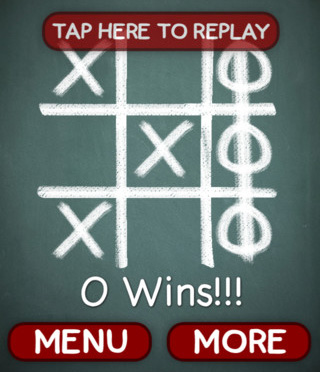
You have to go free these days. You have to get them in the door. Consumers change dramatically. They realize that they don’t have to pay for a bunch of stuff. They want to get hooked first. There’s no barrier to entry with free so my strategy is give them a free app and sell them stuff once they are hooked. So give them either entertainment, fun, or value, and as soon as they get that value, give them an offer that says, “Hey you like this? Well check out this or get more coins” or give them any reason to purchase something. Again, we’re talking about pretty low transactions but you have to go free in the app space these days. That’s what the numbers tell you too.

I messed up a lot so make sure you understand that. It’s not like I nailed every single one of them. I fell on my face a tremendous amount but I just kept going. I was kind of awakened from my experience from the accident and I had an attitude where I don’t care if you put a brick wall in front of me, I was going to smash through it. I moved to San Francisco when my first fingerprint app got rejected. I didn’t even know what I was doing. I dressed up in a suit and tie in 95 degrees, hitched to Cupertino where Apple was. I tried walking into Apple saying, “Why is this thing rejected? What can I do?” I was just determined to make it work.
When I say every app has made money, it’s because it generates a certain amount of income over the course of its time so I’ve made my money back because it didn’t cost me a lot of money to actually make the app. I had an app called Harbor Madness as a competitor to Flight Control, which was at the top of the charts for a long time. I spent all this time making an app, then we launched it and it didn’t do anything. I understand marketing. I have a network. This is the best game that I have done. But I missed the mark on it. So, timing is everything and that market was already gone when I launched it. It still made money but it wasn’t at all what I thought it was.

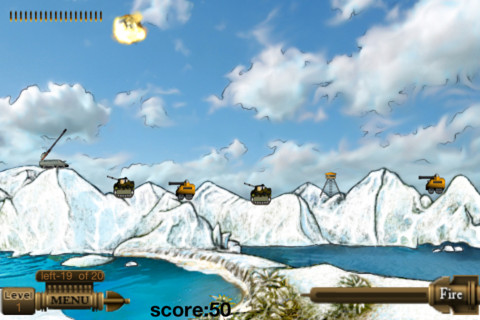
As far as what would I do differently, I think what I would do differently is build the network pretty fast and instead of continuing to do another 20 or 30 apps, I would have pushed all my traffic and got them into consumers into one or two major apps that I would be proud of that I could be working on three or four years out. That’s what I would have done differently instead of constantly building all these apps or generating revenue and then selling everything off.
The first one, which is mindset, is really understanding why you want to get into this because you’re going to have tons of things that basically tell you “You can’t do this” or “Apple is going to reject your app” or you’re going to miss the mark on something, and the difference between that being a multi-millionaire app or being a failure is that drive, basically the gasoline, the fuel for yourself. So figure out why you’re doing this and really make it juicy. Get it emotional. For me, I did a vision board and I wrote everything on my mirrors, all around my place and in my bathroom, and so whenever I wake up, I could see this guy with a fully functioning arm that was traveling all over the place, and I associated so much with that, so that psychology really was conditioned and ingrained in me. That to me is the first step before anything.
The second tip I would say is just really understanding the market place. Don’t look six months ago or three months ago, or Angry Bird-ish, but get really clear with what the market is right now. What is it telling you? It’s like the Matrix. You really have to spend time understanding it and understanding what you want to do with it. Some people might want to jump in and do photo apps. We had a student that’s killing it on photo apps. It’s his first one. Some people might want to do games. So figure out what’s going to really light you up and what the market is saying.
The third one is just getting clear with your team. If you’re a developer, typically, you’re spending all your time coding and not understanding the marketing. These rules are really important with your app business. Even if you are a developer, you have to be able to outsource some work and understand the marketing or you’re not going to get an app that’s going to do anything. I would say pick your team very wisely. Spend time vetting your team, vetting who you’re going to be working with, make sure that they are quality. Make sure that you don’t spend your last dime on them and you have a backup plan. Ask really good questions, see their work, and understand what they are good at working on. I think you can understand marketing and picking the right app idea but if you choose the wrong developer and you sink all your money into them or you don’t manage them properly, then you don’t have an app at the end of the day. It’s really important that you understand that process. Maybe talk to somebody that has worked with a successful developer, encoder, and designer, and you get their recommendation.

I think it’s important to be really clear with what you want. I don’t want to be an Angry Birds and Zynga, they are way different business model and I’m actually not good at running a huge team that’s working with 50 people and managing them. I like the process of what it’s making me grow into. For apps, I see myself building an app that is similar to a brand level of Angry Birds, as a household app.
An example of this would be like a camera app that people use and get a lot of value from but doesn’t have the cost associated with Zynga or something else because that’s a lot of work and that’s a lot of people. I love making apps that I can scale but on a low resource cost and people budget because you can still use that and that’s what’s fun about it.
We’ve got a bunch of apps in the works. One is basically a dueling off game. It’s like a social fighting game that you can play with your friends on, almost like a cool 007 type of app. We’ve got other couple of social games going on. I’ve got some picture apps that we’re working on that we’re about ready to launch. I’m trying to do less apps, higher quality, and getting more revenue from that.
For Duel Off, we just did a soft launch across Australia, New Zealand but we’re going to wait on that one until we get some analytics and then we’re going to tweak and do a full scale launch. It’s English speaking and for us, soft launch is important because you don’t want to throw an app in the store fully if there could be bugs of there could be something wrong with it. We want to get some data and basically optimize it. We want to make sure that everything converts and monetizes. Once it does that, we can throw all kinds of traffic in its direction, but it’s foolish to do that before. You basically could waste your shot at really getting it up there in the charts.
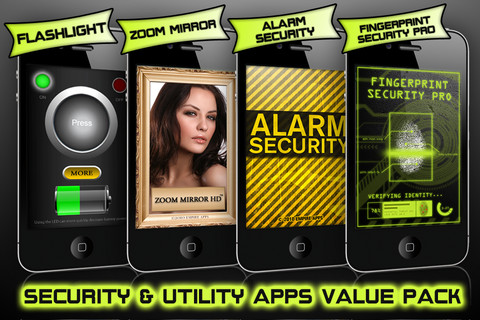
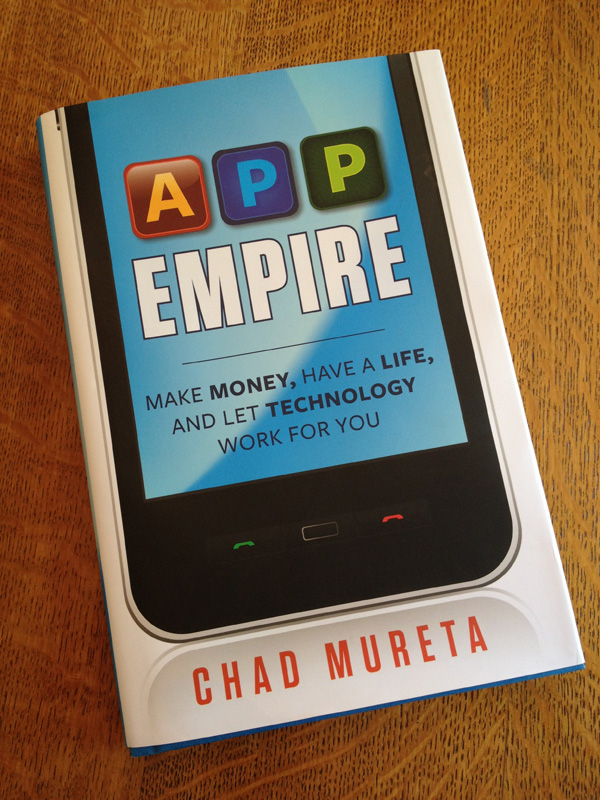
Yeah, the book is called App Empire – Make Money Have a Life, and Let Technology Work for You. It has done really well. We’ve had a lot of success stories just from the book. Once I did the book, a lot of feedback was basically like, “This is amazing. I love it. I’m learning a lot,” but I also have all these questions and that made me think, “Okay, what can I do to answer these questions?”
I got into the internet marketing world last year by creating a product that really held people’s hands through the whole app process. I was helping right around 10-15 people and they all became successful, and a lot of them became very, very wealthy. I was like, “Okay, I can’t scale myself that way so how can I scale my knowledge?” I took the book to the next level and created this whole course with all these different software programs that I created that was automated for people so they could figure out what their app ideas were, pick their keywords, and have all their infrastructure set up. We’ve had some very successful students. Some were making $100,000 a month. They were making faster money than I was back then because they are just grabbing information and they are plug and playing it. It’s incredible to see.
That has been really fulfilling. It has been a process that I’ve had to work at but it has really been fulfilling to see students making that much money and it changes your life. As you know, once you get cash flow coming in, it changes your life, your family’s life, your friends’ life. It’s a completely new you because you’re not stuck to this whole survival of having to work and eat and survive. I’m very grateful for that. I’m very thankful for it for sure. It has been awesome.
Right now, in our community, we have right around like 40,000 and then as far as like full-time entrepreneurs, we have right around 2,200 people that are developing apps that are active and making money. We really have a good reach. Like anything, you have people that are working hard together so the synergy of our group I think is what’s more powerful than even some of the training.

I would say take action in some way or another. Mobile is hot like we’re saying. I feel like there are two types of people. There are either people that are going nuts at this trying to make it work one way or another or there are people who are saying the gold rush is over, mobile is dead, it’s not going anywhere. It’s obviously not dead. It’s just like any business or industry, things change so as entrepreneurs, we have to change with the times. That’s our skill, that’s why we own our own businesses. That’s why we have cash flow to travel around the world and do what we want to do but I would say get educated. You don’t have to buy my book. There are plenty of books and information out there and blogs and stuff like that to take action and get educated, and take steps, even if it’s a baby step, going to a meet up group or an interview on somebody on oDesk or Elance. Take some step into that direction because mobile isn’t going anywhere. It’s making people very wealthy so you should be one of them.
App Empire – Chad’s Official Website
Twitter – Chad’s Twitter
Facebook – App Empire’s Facebook
App Empire Book – Buy Chad’s Book on Amazon

